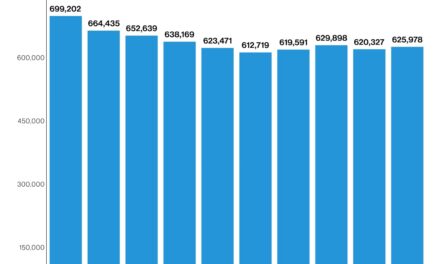Renata Schmitt, clad in leggings and sneakers, long hair pulled back from her face, squinted at the two ropes that arced toward and away from each other in an eggbeater pattern, blurring through the air of a gym in Southeast D.C.
Schmitt, 52, of Arlington, waited, watched, then jumped in. Immediately, the ropes caught around her ankles and fell to the ground.
The two women holding them started swinging again, the ropes slapping the floor in a rhythmic ticktack as music boomed. Schmitt watched for another chance. She jumped in. The ropes entangled her again. She laughed and hopped to the side.
“It’s like five times that I’ve tried it?” she said.
Increasingly, women like Schmitt are jumping in anyway, joining a double-Dutch sisterhood many thought they had left behind. The game, which was played mostly by girls and involves two (or sometimes more) people turning the ropes for one or more jumpers, was a mainstay of 20th-century urban African American communities but then faded from city streets.
In recent years, however, women in middle age and older have returned to double Dutch for the exercise, for the opportunity to recapture the camaraderie and in the hope of passing it down to younger generations. The D.C. group Schmitt joined is a branch of 40+ Double Dutch Club, which was started by a middle-aged mom in Chicago named Pamela Robinson in 2016.
“Jumping double Dutch is something we did … all day, every day, until the streetlights came on,” Robinson said. “It was a simpler time, before we had husbands, kids, grandkids, bills.”
Believed to have arrived in New York City with Dutch immigrants, the practice was embraced by African American girls, who would stuff their ropes in their schoolbags and play at school, in the projects and on stoops, said Kyra Gaunt, a professor of music at the State University of New York at Albany and author of the book “The Games Black Girls Play: Learning the Ropes From Double-Dutch to Hip-Hop.” Chants and jingles often accompanied the jumping.
“It’s a symbol of Black girlhood,” Gaunt said. “It represents something that was originated by Black girls and that we were striving at.” The fast-stepping, trick-laden jumping can look intimidating, she said, “but there is such ease when Black girls do it. It’s like magic.”
But that informal play began to wane in the 1970s as a New York league added rules and regulations, competitive double-Dutching entered schools, and gang and drug warfare made some city streets more dangerous. The rise of the internet since has kept more children indoors, too.
“These kids have technology,” Robinson said. “There’s no app for double Dutch.”
When Robinson was a child, double Dutch was her “happy place.” For her, as for many women, returning to the game in adulthood symbolized a return to caring for herself, after years of taking care of others.
“I was 45,” Robinson said. “I was going through a very difficult place in my life. … My 20-year marriage was ending. I’d been a stay-at-home mom for almost 20 years. My kids didn’t need me at home in the same way. I felt like I was sinking into depression.”
So she approached a friend. “We need to start doing double Dutch like we did in the ’70s,” Robinson told her. “It would give me something to smile about.”
Their first meeting was seven neighbors and church friends, in a high school parking lot. “We jumped and we played and we laughed and we jumped,” Robinson said. They created a Facebook page, which grew to about 30 women. In 2019 a Chicago TV station aired a segment on them. In two days, the group exploded to more than 1,000 women around the world.
Now, the Facebook group has more than 50,000 members, and 40+ has more than 100 subsidiary clubs around the world, including a few in Germany, Israel and Canada.
“I think this 40-and-over thing is really, really healing,” Gaunt said. “It’s exuberant, it’s full of life … that little elliptical stage you’re erecting, defying gravity and defying aging. I don’t care what size you are: You can kick up your heels and jump double Dutch.”
In Anacostia, where 25 to 30 women in the D.C. group meet each Saturday morning, the gym echoed with music and laughter and the slapping of ropes. The group mixes in some hula-hooping, African hopscotching and line dancing, but double Dutch is the core. Several members plan to attend the organization’s national “play date,” held each year in Chicago, this weekend — a three-day gathering of women from across the country who come together to jump and bond.
Carol Jones, 58, tall with long braids, said she double-Dutched as a child in Philadelphia and joined the group a couple of months ago. “I just came back and jumped in, and it was like I’d never stopped,” she said. “I even surprised myself, because I could do a couple of tricks the first time, like hop on one foot, turning around, crossing my legs.”
Women at the Dream Center lined up around duos turning ropes of different lengths. For beginners, they moved more slowly; more advanced jumpers picked up the pace, hopping just high enough to clear the ropes that swooshed below. Most challenging was a set of ropes long enough for a parade of jumpers to join in — “One! Two! Three! Four! Five! Six!” the women counted out — all moving in sync like a flight of swallows.
Rita Jackson, 58, of Lorton, Va., said she had grown up double-Dutching in New York but left when she was 11. She joined 40+ after her daughter went to college and she craved more social interaction.
“It’s the fellowship,” Jackson said. “If I didn’t like these gals I wouldn’t come here from Northern Virginia.”
But the game isn’t as easy as it was in childhood, said Tamika Randall, 44, a District Heights resident who joined last month after seeing the group on Instagram.
“Everything hurts when you get over 40,” she said.
The oldest member of the D.C. group is Joan Young, 80, who slipped lithely between the ropes and merged into a line of jumpers. A retired psychiatric social worker who lives in Temple Hills, Young recalled jumping double Dutch as a girl in Anacostia.
“It was just a part of the environment — dodgeball, jump rope — and it was usually in the streets. All ages, mostly girls,” she said. It faded by junior high, when, she said, “you were probably more interested in things other than double Dutch.”
When she was 78, Young was working as an election judge and heard about the group from a colleague. She attended a meeting. “It was just so rewarding,” Young said. She closed her eyes. “It just made me feel great. I hadn’t jumped in ages.”
Looking around, she said: “They made me feel like I’m a queen. I am the matriarch. Age is not as respected as it was previously. I get that here.”
And when she couldn’t come to the meetings, they came to her. “My husband was very ill. They came and jumped in the street so I could participate,” she recalled. “This has been a lifesaver for me.”
The lifesaving can be literal. Cheri Ramsey, 60, a kindergarten teacher who lives in Upper Marlboro, Md., and joined the group a year ago, said she recently went for her annual physical.
“My doctor said: ‘Guess what? I don’t think you’re going to be taking any more blood pressure medication. What have you been doing this past year?’” Ramsey recounted. She told him she’d been jumping double Dutch. “Well, you keep it up,” her doctor said, according to Ramsey.
She can now take walks with her grandson that once would have been too strenuous. “Before, I was close to prediabetic,” Ramsey said. “I’m not even concerned anymore. Sometimes, you get something and you didn’t even know you needed it.”
The D.C. group showcases double-Dutching at schools and community events, including the school where Ramsey teaches. “The whole school is still talking about it,” she said. It has ordered its own jump ropes.
“The teenagers coming up these years, this is what they need most,” said Sharde Perry, chief executive and founder of JumpDC Superstars, which is about to start its second year as a competitive traveling team for youth in the Washington region.
Perry, 38, double-Dutched competitively as a D.C. Public Schools student in the 1990s. Particularly for heavyset teens who may feel daunted, she said, “they see people who look like them doing it and say, ‘Wait, there is a possibility that I can do this.’”
When Schmitt, the 40+ group’s newcomer, finally succeeded in jumping in between the ropes, the other women rewarded her with hugs and high-fives. A corporate-governance specialist who grew up in Brazil, she was one of the few who had never double-Dutched as a child. She, like many, had come across the group on Facebook.
“It’s super-inspiring,” Schmitt said. “I showed up, I knew nothing, and they’re like, ‘No, you’ve got it.’
“It’ll take me a lifetime, but I’ve got time.”




